So, what’s the difference between a laptop and a tablet? Well, they are both portable computer devices, and you can easily carry them around with you. But laptops and tablets differ in some different ways.
If you are thinking about getting either a laptop or a tablet, this comprehensive guide is for you. We will provide you with a comparison chart and the key differences between laptops and tablets. You will also find the advantages and disadvantages of both these devices. Finally, we will help you to make buying decision between a laptop and a tablet.
Table of Contents
Comparison Chart
| Laptop | Tablet | |
| Main Differences | A laptop is a powerful computer that you can carry around with you. Some laptops are as powerful as desktop computers. | A tablet is a mobile device which is really a larger smartphone. It does not have the power of a laptop, but it is smaller and lighter. |
| Main Uses | Most people use laptops for their work or business. A laptop can perform most of the tasks that a desktop computer can. You can also play intense games on a laptop. | Tablet owners tend to use them for social media, surfing the Internet, and entertainment such as watching streaming movies. A tablet does not have the processing power of a laptop. |
| Popular Manufacturers | There are many laptop manufacturers, which include Acer, Asus, Apple, Dell, HP, Lenovo, Microsoft, Samsung, Sony, Toshiba, and Xiaomi | The most popular manufacturers of tablets are Apple and Samsung. Other famous manufacturers include Asus, Amazon, Google, Huawei, LG, Microsoft, and Xiaomi |
| Operating Systems | A laptop will run most types of operating systems. Windows is the most popular, followed by Apple OSX and Linux | Tablets can use different operating systems, but the most popular are Apple iOS and Android. There is a Windows OS for tablets too |
| Physical Size | Laptops are designed for portability and vary in size. Some laptops are really small, whereas other more powerful machines with large screens can be bulky. A laptop screen size ranges from 10 inches to 20 inches | Most tablets are relatively small devices in the range of 5 inches to 13 inches. The size of the screen dictates the overall physical size of the device |
| Weight | Because there are many different types of laptop, the weight varies from 2 pounds at the low end to 7 pounds at the high end | A tablet is usually a lot lighter than a laptop and can vary from 0.5 pounds at the low end to 2 pounds at the high end |
| Storage Capacity | Modern laptops have an internal storage device that has a capacity ranging from 256 GB to 1 TB and beyond | Storage is limited with a tablet. Some come with only 8 GB, while others have 64 GB. It is possible to add more storage to a tablet through the use of an SD card |
| Heat and Noise | A laptop requires at least one fan to keep the CPU cool and other components. Fans are fairly silent, but you can hear them | Tablets do not have any cooling arrangements and are virtually silent in operation |
| Limitations | Laptops have limited battery life which is usually less than tablets. | Tablets cannot deal with more difficult tasks than laptops can. They also have less storage capacity and tend to have fewer ports |
| Prices | It is possible to buy a laptop for around $200, but a high-quality machine with lots of power can easily cost more than $1,000 | The price of tablets is usually from $200 to $500. You will pay more for larger tablets that have more storage |
Differences between Laptop and Tablet
It is not always easy to tell the difference between a small laptop and a large tablet device. But there are some significant differences which you need to be aware of. The good thing is that you have a choice of which type of device to go for.
You can usually do a lot more with a laptop than you can with a tablet. They tend to be a lot more powerful and be very similar to desktop computers in their features and hardware. A tablet is great for simpler things such as web surfing, social media, and entertainment.
Weight and Portability
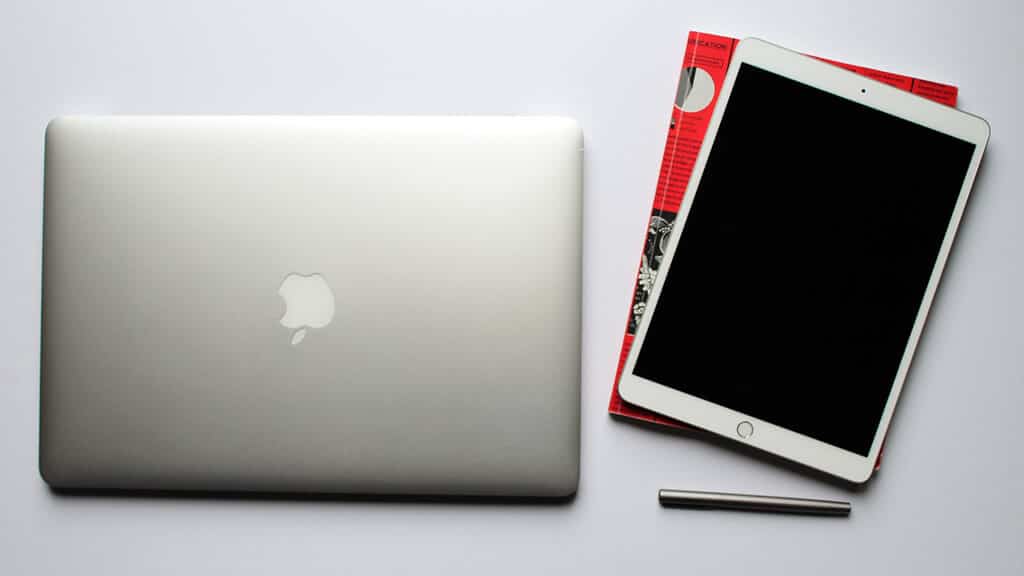
Laptops tend to be quite a lot larger than tablets because they contain a lot more hardware. Screen sizes are usually a lot bigger and other components make laptops heavier. Some of the smallest laptops only weigh around 2 pounds, but these will not have the same features and functionality as the largest and heaviest laptops, which can weigh more than 7 pounds.
It is unusual to find a tablet device that weighs more than 2 pounds. Some smaller tablets weigh less than a pound, and you can easily pick up a modern tablet with one hand. In terms of portability, the tablet will win every time. They are almost always smaller and lighter and very easily carried around.
Of course, laptops are designed to be carried around easily as well. A laptop that weighs 7 pounds is not really that heavy, especially if you carry it around in a specially designed laptop bag. Picking up a laptop with one hand is also possible, but it will always be a bit more difficult to carry around with you than a small, lightweight tablet device.
Budget VS Performance
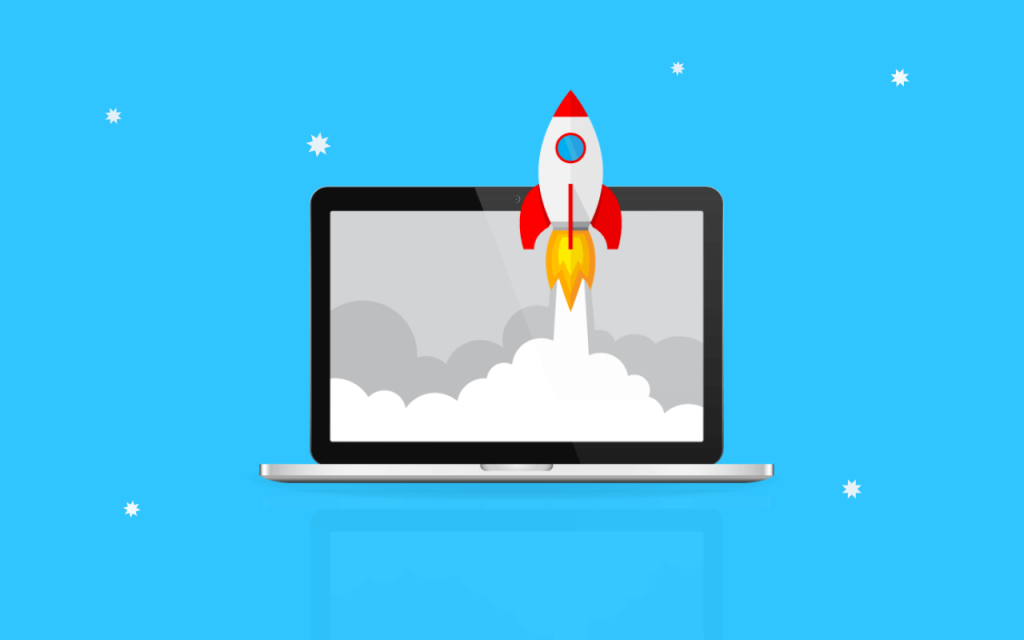
It gets really interesting when you start to compare the price and performance of laptops and tablets. In general, a laptop will always be more powerful than a tablet, and you will be able to complete more complex tasks with it.
Low-end laptops start from around $200, whereas a good quality tablet from a manufacturer like Samsung starts from around $120. Just as you can pay well over $1,000 for a high-end laptop, you can pay the same amount for a high-end tablet from a manufacturer like Apple.
Making a straight comparison here is not easy. But given that laptops have a lot more processing power and other features over tablets, it is fairly safe to assume that you will get more performance for your money with a laptop over a tablet.
Battery Life
Tablets usually win the battery life game by quite a distance. There are a couple of reasons for this. Firstly, the hardware components within a tablet are a lot less power-hungry than the components in a laptop. Secondly, a tablet tends to have a much larger battery compared to its overall size than a laptop does.
Although a laptop usually has a higher capacity battery than a tablet, it will still not last anywhere near as long as a tablet battery will. This is because the hardware with a laptop consumes that much more power. It is like a portable desktop computer.
There have been a number of battery life tests conducted with laptops and tablets. As several different types of laptop and tablet are available, we cannot provide you with specific times here. But we can tell you that on average, a laptop that is only used for web surfing will last between 4 and 8 hours, while a tablet used for the same thing will last at least 10 hours on average.
Display Size and Resolution
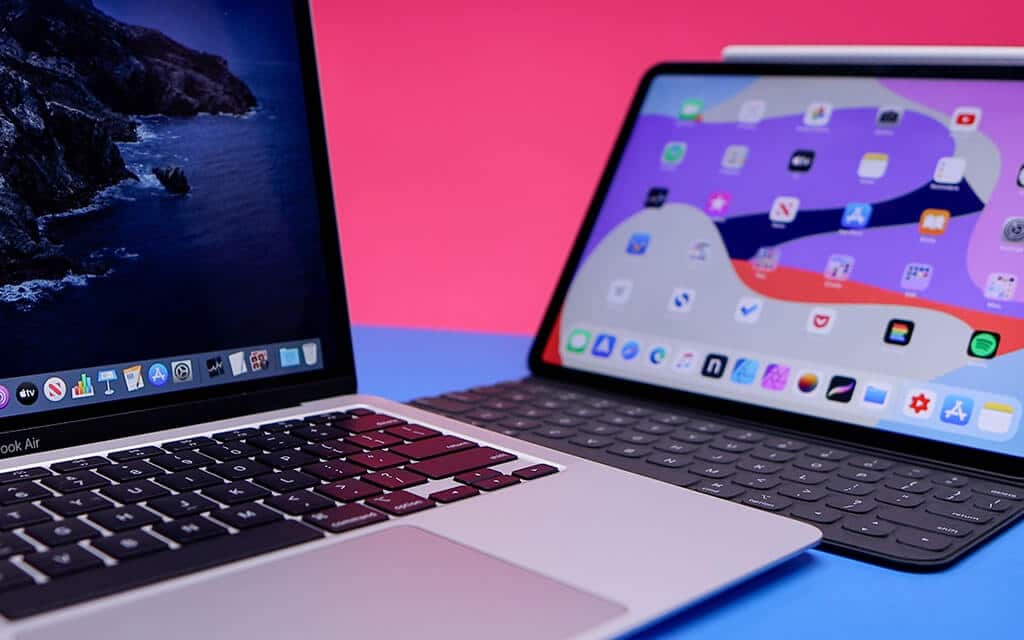
Laptops are larger than tablets, so they will always win when it comes to screen size. A laptop screen can range in size from 10 inches to 20 inches. With a tablet, the screen size will vary from 5 inches to 13 inches.
The most popular laptop screen size is around 14 inches, while the most popular tablet screen size is half that at around 7 inches. Larger tablet screen sizes make the devices more difficult to hold. A laptop with a 20-inch screen size will be big and bulky, but this is necessary for some users.
Check out: The best tablets for photo editing
When it comes to screen size, it is all about what you want to use the laptop or tablet for. Both of these devices increase in price with larger screens as you would expect. However, while tablet screens are usually high quality when they are from manufacturers such as Apple and Samsung, they will not match the quality of the top laptop displays.
The screens on most tablets have a higher pixel density than laptop screens do. This means you will see a sharper image on a tablet screen as you cannot see individual pixels. Just as the resolution of laptop screens varies, so does it with tablet devices. These days you can purchase a tablet device with a very high-resolution display.
You tend to get what you pay for when it comes to screen resolution quality. Low-end tablets and laptops are not going to have the same screen resolution quality as high-end devices. However, if you are going to use your laptop or tablet for more general things such as the web, it doesn’t matter too much.
Connectivity
Both laptops and tablet devices are usually Wi-Fi and Bluetooth enabled. It is essential to connect to the Internet and interfere with specific devices such as printers and other peripherals. A tablet will usually support a connection to a mobile phone network via a SIM card, but this is rare with a laptop.
When it comes to physical ports, modern laptops will have far more than a tablet device. For example, it is common for a laptop to have an HDMI port to connect to a larger monitor or TV screen. In addition, laptops will usually have an Ethernet port, audio jacks, and several USB ports in either USB 3.0 or USB-C format.
A tablet device usually has one port. With Android devices from companies like Samsung, this will either be a Micro USB port or a USB-C port. Apple went their own way with their proprietary Lightning port, but their most modern tablets are equipped with USB-C.
Keyboarding
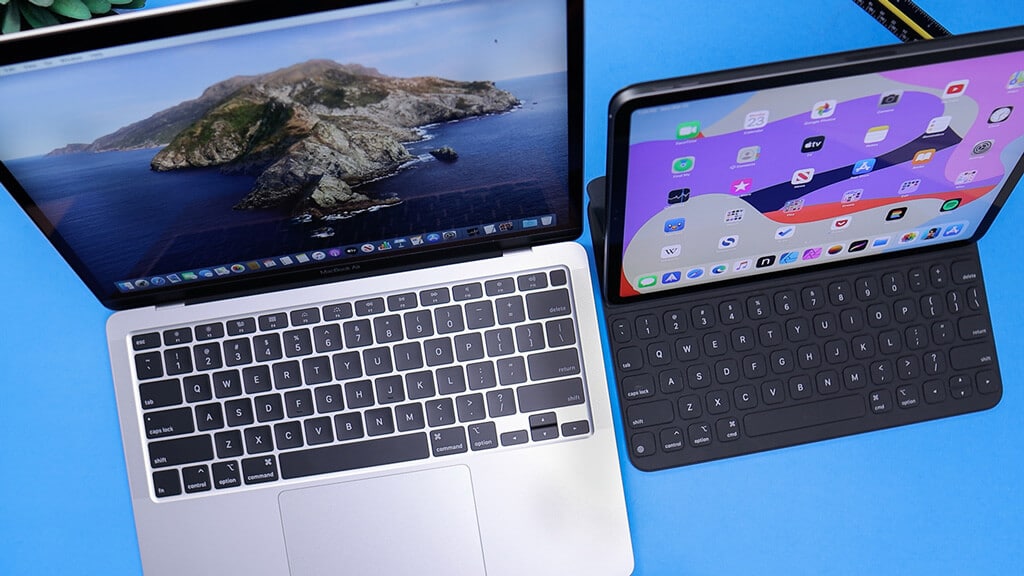
Laptops have a built-in keyboard which is convenient for typing. Tablets do not have a physical keyboard and rely on a virtual touchscreen keyboard, making life difficult. Some people really hate the virtual keyboard concept and typing one character at a time with their fingers. Others are fine with this approach.
If you have to do a lot of typing, then you need a physical keyboard. There are external keyboard accessories for tablets that work well, but they are not the same as the physical keyboard on a laptop. You can get 2 in 1 tablet devices nowadays that have a detachable keyboard, so here you are getting the best of both worlds.
Operating Systems
Most modern tablets will use either the Apple iPad OS or the Android operating system. There are others, but these two are far and away from the most popular. In addition, laptops can use Apple macOS, Microsoft Windows, or Linux for their operating systems.
A laptop uses the same operating systems that a desktop computer does. However, they are a lot more powerful than the operating systems for mobile devices such as tablets. Operating systems like Android and iOS are easy to use and a lot more streamlined than laptop operating systems.
We need to talk about applications here as well. While there are many mobile versions of popular laptop applications, these are never likely to have all of the features that the laptop versions do. To sum it up, tablet operating systems are pretty limited when compared to laptop operating systems.
Pros and Cons of a Laptop
Pros
- More powerful
- Larger screens
- Physical keyboard
- You can do more
- Larger storage capacity
- More connectivity options
- memory and storage can be upgraded
Cons
- Physically larger
- Heavier
- Usually more expensive
- Not so easy to carry around
- Operating systems take longer to load
- Battery life not as good
Pros and Cons of a Tablet
Pros
- Lightweight
- Compact
- Faster starting
- Simple to use
- Built-in high-quality camera
- Mobile network connectivity
- Longer battery life
Cons
- Not as powerful
- Limited upgrade options
- Virtual keyboard
- Limited applications
- Limited storage capacity
- Limited connectivity options
Frequently Asked Questions
What is the purpose of a tablet?
Tablets are versatile devices that can be used in many different ways. You can use a tablet to do a wide variety of things, like reading and responding to email, making video calls, watching TV shows and movies, surfing the web, reading ebooks, playing games, and much more.
What is the main difference between a tablet and a laptop?
A laptop is a portable computer with input, output, and other components built into one package. Tablets are typically lightweight, portable, touch-screen computers that run on a mobile operating system. A tablet computer might be larger and thicker than a standard tablet.
Is it possible to print from a tablet?
Most Android tablets can print from your phone without needing 3d-party apps. Android tablets can detect Wi-Fi-enabled printers, allowing you to transfer documents to any printer connected to your device’s Wi-Fi network.
Which is better, a tablet or a laptop?
Laptops are more powerful than tablets and can easily run multiple programs simultaneously. This means that laptops are extremely effective and useful for multitasking. Laptops have more storage than tablets since they use standard hard disk drives.
Can tablets replace laptops?
Let’s get one thing straight: while a tablet is the new Jeeves and is designed to do many things, it is not meant to replace your laptop. Yes, tablets are highly portable, easier to carry, ideal for media consumption, getting cheaper, and great travel (and bed) companions. So will tablets replace laptops? Sure, eventually. However, that won’t happen today for most people.
Which is best for students, laptop or tablet?
A laptop is superior to a tablet when you need to run different programs, need a larger HDD to store data, or need to launch anything fast to get work done. With only a tablet, it will be hard to do college projects and research with 50+ browser tabs open. You will need to get a laptop.
Choosing Between a Laptop and Tablet
If you plan to create a lot of content, then a laptop is the best choice. It is far easier to create documents, spreadsheets, databases, videos, website creation, and more using a laptop. But if you are more of a consumer of content, then a tablet can be the ideal solution for you.
While you can use a tablet device for some business applications, a laptop will provide you with a lot more flexibility. The programs available for tablet devices tend to be limited in features, and it is usually harder to use them with the touch screen.
Tablets certainly win the portability game as they are a lot more lightweight and compact. It is not that difficult to carry a laptop around with you, but it is much easier to carry a tablet. At the end of the day, you need to think about what you want to use these mobile devices for.
Some people prefer to use a touchscreen to navigate, while others like the conventional mouse and keyboard approach. Typing on a virtual keyboard is not great, but it’s okay if you do not plan to do a lot of typing. So, consider what you want to achieve before deciding to go for a laptop or a tablet.
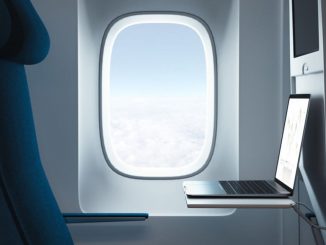
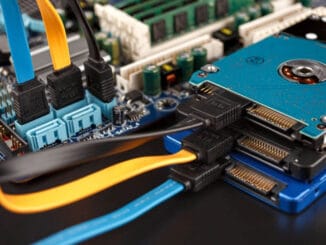
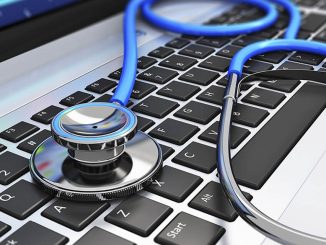

Thanks for this informative but basic guide. it is very helpful.
I need a screen for downloading photographs etc. for copying as an artist. Therefore I need high resolution and the ability to enlarge quickly in order to zoom in to detail. I don’t have a huge budget _ say Max. £350.
What would you recommend?